We would argue that it matters a great deal in three key areas: 1) Data Quality, 2) Brand Equity, 3) Credibility among decision-makers. If these three reasons will not get our heads out of the sands nothing will, but let’s look at them more carefully.
Trust impacts data quality
Trust impacts people’s motivation to participate in research. Our data shows that being transparent about who the client behind the research is, has a huge impact on people’s willingness to take part in research.
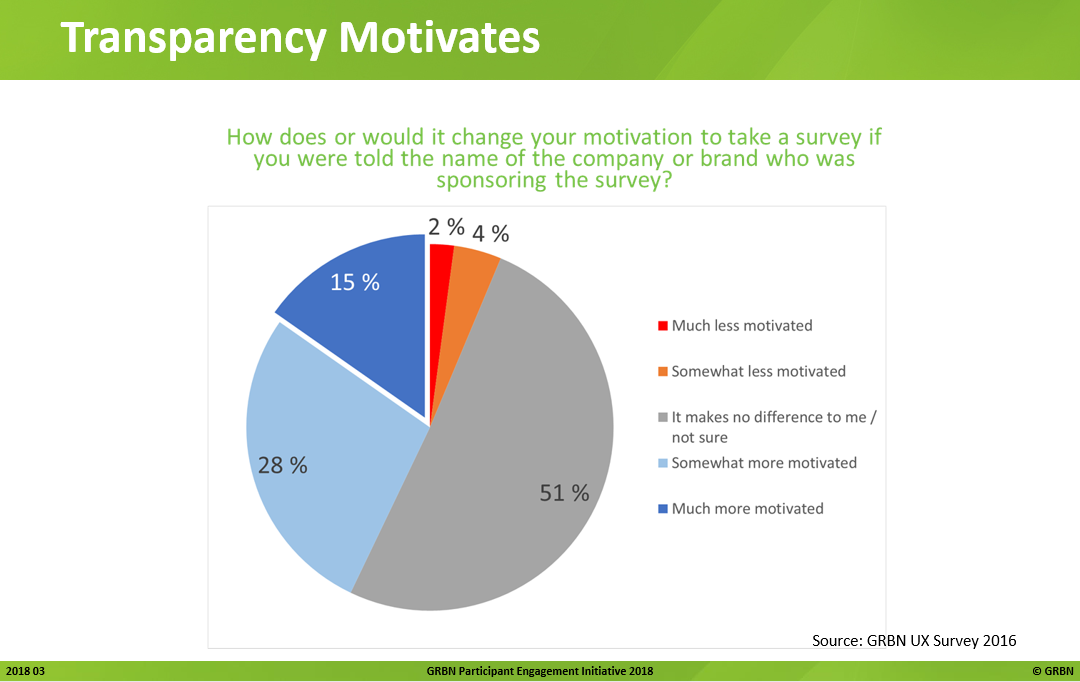
We all know that a trust relationship is built on mutual respect. Our data shows that giving people a poor use experience, which is a very clear sign of a lack of respect for the participant, has a big impact on data quality. As an example, here are just a couple of things people do, when faced with a poor user experience when taking a survey:
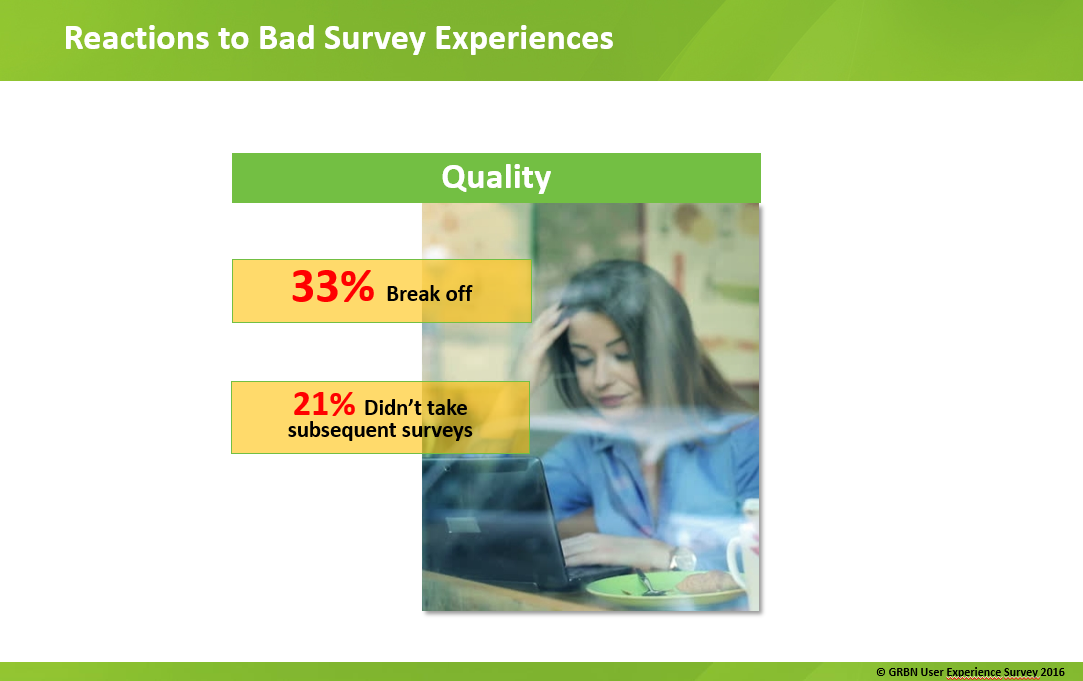
Serving up overly long surveys is proven to also have a negative impact on data quality. Here is a perfect example provided by Synchrony, one of the companies participating in the GRBN ENGAGE MR Program:
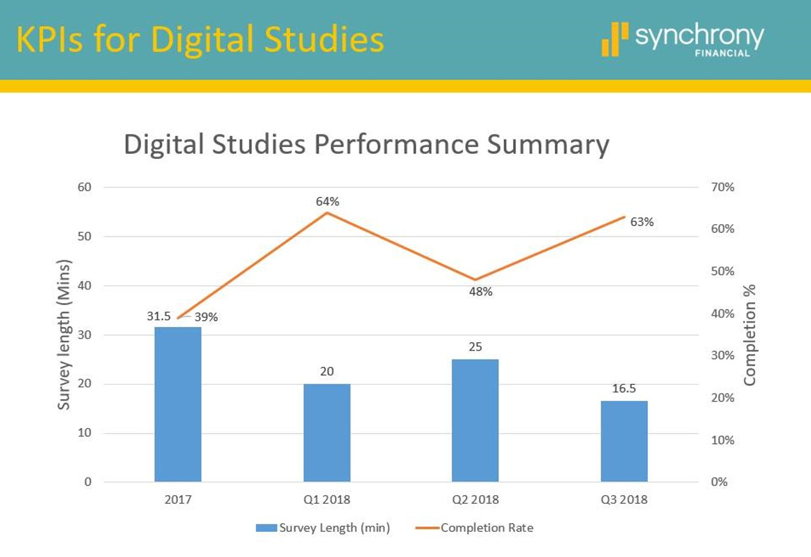
Trust Impacts Brand Equity
Not only does trust in what we do impact data quality, it also impacts the clients, who are commissioning the research.
If we give people a poor experience it negatively impacts the way people feel about the brand behind the research, which in turn has a negative impact on the end clients’ brand equity. In addition, many people who have bad survey experiences tell others about their poor experience, further amplifying the negative impact on the clients we are trying as an industry to help.
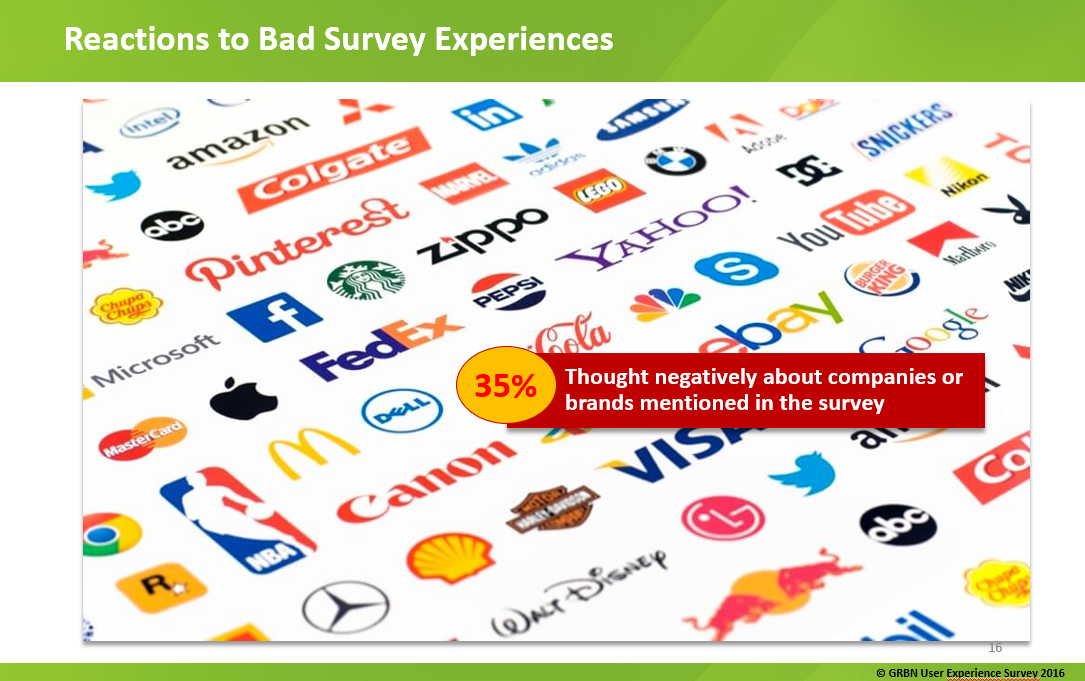
Whilst there is a negative impact on clients when giving people bad experiences, there is inversely a positive impact when a great experience is given to research participants. One way to give a great experience to the people, who have willingly given up their time to participate in research, is to have the client thank them for their time in a short video at the end of the survey. The test we conducted on this last year, in partnership with MetLife, showed that such a video can have a huge impact on both data quality and the client’s brand equity.
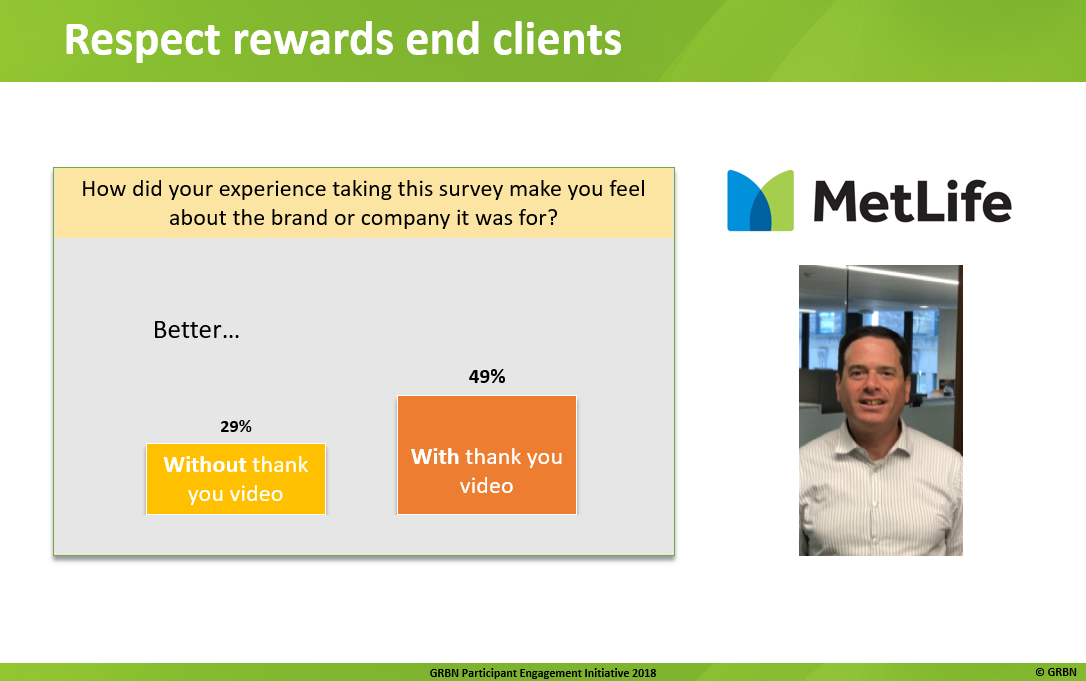
Trust impacts business decision-makers
If these two reasons are not enough to convince you to act, then the third one should.
We tend to forget that business decision-makers are also people: people who do not live in a vacuum. Not only do they get to take surveys themselves, at least now again, but they are open to hearing both positive and negative word-of-mouth from other people.
Business decision-makers have the opportunity to use more and more different types of data in more and more different ways to answer their business questions. If they do not trust market research, they will be less and less likely over time to use our services and our data to answers those business questions.
We recently were told a story where things had gone very wrong in a company, and the trust in what we do was destroyed at the C-Suite level: A number of different managers had come to a meeting all armed with their own data to support the business decision at hand. Unfortunately, the data gave conflicting evidence and left the senior management confused as what action to take. In his frustration, the most senior manager in the meeting, just shook his head and said: “I think we have a case of fake news here. Come back when you have your story straight.”
This example shows just how easy it is to destroy trust amongst business decision-makers, and how the onus is on us as a sector, as companies, and as individual practitioners to work harder to build trust in what we do.
Get involved
So yes, we believe trust matters and hope you do too? If so, you can
read more here about what we are doing to build the degree of trust people have in market research companies, and how you can get involved.
If you’re already convinced about the need to act,
please get in touch so we act together and amplify the impact we can have.
 We all know that a trust relationship is built on mutual respect. Our data shows that giving people a poor use experience, which is a very clear sign of a lack of respect for the participant, has a big impact on data quality. As an example, here are just a couple of things people do, when faced with a poor user experience when taking a survey:
We all know that a trust relationship is built on mutual respect. Our data shows that giving people a poor use experience, which is a very clear sign of a lack of respect for the participant, has a big impact on data quality. As an example, here are just a couple of things people do, when faced with a poor user experience when taking a survey:
 Serving up overly long surveys is proven to also have a negative impact on data quality. Here is a perfect example provided by Synchrony, one of the companies participating in the GRBN ENGAGE MR Program:
Serving up overly long surveys is proven to also have a negative impact on data quality. Here is a perfect example provided by Synchrony, one of the companies participating in the GRBN ENGAGE MR Program:

 Whilst there is a negative impact on clients when giving people bad experiences, there is inversely a positive impact when a great experience is given to research participants. One way to give a great experience to the people, who have willingly given up their time to participate in research, is to have the client thank them for their time in a short video at the end of the survey. The test we conducted on this last year, in partnership with MetLife, showed that such a video can have a huge impact on both data quality and the client’s brand equity.
Whilst there is a negative impact on clients when giving people bad experiences, there is inversely a positive impact when a great experience is given to research participants. One way to give a great experience to the people, who have willingly given up their time to participate in research, is to have the client thank them for their time in a short video at the end of the survey. The test we conducted on this last year, in partnership with MetLife, showed that such a video can have a huge impact on both data quality and the client’s brand equity.








